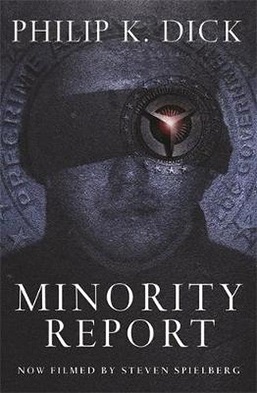Title: Fahrenheit 451
Author: Ray Bradbury
Format: Paperback
Genre: Science Fiction/dystopia
Year: 1953
Acquired: Library Loan
Challenge: Vintage Sci-Fi Not a Challenge Month
Ranking: Back it up
Summary: Guy Montag was a fireman whose job it was to start fires...
The system was simple. Everyone understood it. Books were for burning ... along with the houses in which they were hidden.
Guy Montag enjoyed his job. He had been a fireman for ten years, and he had never questioned the pleasure of the midnight runs nor the joy of watching pages consumed by flames... never questioned anything until he met a seventeen-year-old girl who told him of a past when people were not afraid.
Then he met a professor who told him of a future in which people could think... and Guy Montag suddenly realized what he had to do!
My Thoughts: I just finished reading Fahrenheit 451 book this morning. I was not impressed with the ending of this masterpiece. I still cannot believe how Bradbury accomplished writing this book. He wrote the entire novel in the basement of UCLA's Powell Library on a pay typewriter that he rented for a fee of ten cents per half an hour. To me that is craziness, but what is one to do if they do not have a typewriter of this or her own. It was the 1950’s after all.
About the book, I just could not even fathom a world not being able to have access to books. In this world that Montag lived in it was against the law to own or possess a book. Look at what you learn from reading through the pages of people from the past and learning from their mistakes. It is good to know why something is or isn’t true. Bradbury did a wonderful job putting the reading in Montag’s shoes and you could feel so deeply what he was feeling about the world that he was living in. I would recommend that if you did not read this book yet. Just give this one a shot, you will not be sorry.
Author: Ray Bradbury
Format: Paperback
Genre: Science Fiction/dystopia
Year: 1953
Acquired: Library Loan
Challenge: Vintage Sci-Fi Not a Challenge Month
Ranking: Back it up
Summary: Guy Montag was a fireman whose job it was to start fires...
The system was simple. Everyone understood it. Books were for burning ... along with the houses in which they were hidden.
Guy Montag enjoyed his job. He had been a fireman for ten years, and he had never questioned the pleasure of the midnight runs nor the joy of watching pages consumed by flames... never questioned anything until he met a seventeen-year-old girl who told him of a past when people were not afraid.
Then he met a professor who told him of a future in which people could think... and Guy Montag suddenly realized what he had to do!
My Thoughts: I just finished reading Fahrenheit 451 book this morning. I was not impressed with the ending of this masterpiece. I still cannot believe how Bradbury accomplished writing this book. He wrote the entire novel in the basement of UCLA's Powell Library on a pay typewriter that he rented for a fee of ten cents per half an hour. To me that is craziness, but what is one to do if they do not have a typewriter of this or her own. It was the 1950’s after all.
About the book, I just could not even fathom a world not being able to have access to books. In this world that Montag lived in it was against the law to own or possess a book. Look at what you learn from reading through the pages of people from the past and learning from their mistakes. It is good to know why something is or isn’t true. Bradbury did a wonderful job putting the reading in Montag’s shoes and you could feel so deeply what he was feeling about the world that he was living in. I would recommend that if you did not read this book yet. Just give this one a shot, you will not be sorry.











